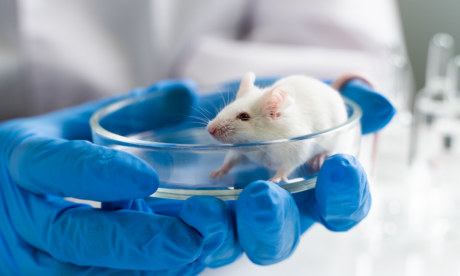-
Explore Course Categories
- Explore Course Categories
-
Engineering and Construction

91 Courses -
Personal Development

111 Courses
-
Explore Careers Categories
-
All Courses
-
Get Adams Premium (Remove Ads)
-
Adams Blog
-
Resume Builder
-
Adams For Business
-
Download the Adams App
-
Welcome Back!
- Don't have an Adams account? Sign Up
or -
Sign Up For Free
Join the World’s Largest Free Learning Community
- Already have an Adams account? Log In
orThis is the name that will appear on your Certification
-
Forgot password?
Please enter you email address and we will mail you a link to reset your password.
- Home
- Course
- Teaching and Academics
- Science
- Introduction to Animal Science
Introduction to Animal Science

This course includes:
-
43 minutes
-
CPD Accreditation
-
3 units
-
Full lifetime access
-
Access on mobile and TV
-
Certificate of completion

course plublisher
Edu SmartLearning Outcomes:
- Understand the principles of animal science, including genetics, nutrition, and behaviour.
- Identify and describe the anatomy and physiology of domestic animals, including their major organ systems and functions.
- Understand the basics of cell biology and its relationship to animal growth and development.
- Analyse the interactions between animals and their environment, including how animals adapt to different environmental conditions.
- Discuss the role of animal agriculture in global food production and its impact on society and the environment.
- Understand the ethical considerations involved in animal production and management.
- Develop critical thinking and problem-solving approaches to apply animal science principles in real-world scenarios.
Course Overview:
This course in Introduction to Animal Science is designed to provide a comprehensive understanding of the principles of animal science, animal anatomy and physiology, and cell biology.
In the principles of animal science section, you’ll learn about the genetics, nutrition, and behaviour of domestic animals. In addition, we’ll cover topics such as animal breeding, feed formulation, and animal behaviour, as well as the impact of animal agriculture on the environment and society. In the animal anatomy and physiology section, you’ll explore domestic animals’ major organ systems and functions, including their reproductive, digestive, and respiratory systems. You’ll also gain an understanding of the basics of cell biology and its relationship to animal growth and development.
Course Benefits:
This Introduction to Animal Science course is ideal for anyone interested in understanding the biology and behaviour of domestic animals and the principles of animal agriculture. You’ll develop a comprehensive understanding of domestic animals’ genetics, nutrition, and behaviour, as well as the anatomy and physiology of their major organ systems. You’ll also gain an understanding of the basics of cell biology and its relationship to animal growth and development.
By the end of this course, you’ll be equipped with the knowledge and critical thinking methods to analyse the interactions between animals and their environment and understand the ethical considerations involved in animal production and management. So whether you’re interested in pursuing a career in animal agriculture or want to learn more about the biology and behaviour of domestic animals, this course will provide you with a solid foundation in animal science.
Career Path:
- Animal Geneticist – Conducts research to improve animal breeding and genetic selection.
- Livestock Nutritionist – Formulates animal diets to optimise animal health and production.
- Animal Behaviorist – Studies animal behaviour and develops strategies to improve animal welfare and production.
- Animal Welfare Inspector – Ensures that animal production and management practices comply with ethical and legal standards.
- Veterinary Pathologist – Diagnoses and treats diseases in animals, including livestock.
- Livestock Production Manager – Oversees the day-to-day operations of a livestock production facility.
- Animal Science Educator – Teaches animal science principles at the high school or college level.
Course content
-
Principles of Animal Science
00:07:00 -
Animal Anatomy and Physiology
00:21:00 -
Cell Biology
00:15:00

Certify Your Skills
A CPD accredited Adams Diploma/Certificate certifies the skills you’ve learned.

Stand Out From The Crowd
Add your Adams Certification to your resume and stay ahead of the competition.

Advance in Your Career
Share your Adams Certification with potential employers to show off your skills and capabilities.

About Course Publisher

 Courses
Courses
Welcome to Edu Smart, an innovative e-learning course provider proudly part of Adams Academy, where education meets accessibility! At Edu Smart, we believe that high-quality education should be a right, not a privilege. That's why we offer a diverse range of online courses, absolutely free of charge, to learners worldwide. Join Edu Smart today and embark on a journey of learning that's as rewarding as it is enjoyable. Discover the joy of learning with us, where your educational aspirations meet limitless possibilities!
More Free Online Courses by This Publisher

Certificate
Sustainable Living
 7
Lessons
7
Lessons
 73
Students
73
Students

Certificate
Teaching Students with Learning Disabilities
 8
Lessons
8
Lessons
 30
Students
30
Students

Certificate
Parenting Skills Training Course
 16
Lessons
16
Lessons
 21
Students
21
Students

Certificate
Functional Skills Maths Level 2
 66
Lessons
66
Lessons
 44
Students
44
Students

Certificate
Home Based Childcare Course - Level 3
 9
Lessons
9
Lessons
 19
Students
19
Students



























 Introduction to Animal Science
Introduction to Animal Science